Shows
 MasonCodingMastering Software Design Patterns: An Essential Guide for DevelopersIn this episode, we dive into the fascinating world of software design patterns, exploring their essential role in creating robust, maintainable, and scalable software. We break down design patterns into three main categories—creational, structural, and behavioral—unpacking how each addresses common challenges in software architecture.
Discover how design patterns improve code quality, promote reusability, and align seamlessly with foundational principles like SOLID. We also explore their versatility across programming paradigms, including object-oriented, functional, and procedural approaches. To bring theory to life, we showcase concrete examples of popular patterns, demonstrating their practical application in real-world scenarios.
Wh...2024-12-2618 min
MasonCodingMastering Software Design Patterns: An Essential Guide for DevelopersIn this episode, we dive into the fascinating world of software design patterns, exploring their essential role in creating robust, maintainable, and scalable software. We break down design patterns into three main categories—creational, structural, and behavioral—unpacking how each addresses common challenges in software architecture.
Discover how design patterns improve code quality, promote reusability, and align seamlessly with foundational principles like SOLID. We also explore their versatility across programming paradigms, including object-oriented, functional, and procedural approaches. To bring theory to life, we showcase concrete examples of popular patterns, demonstrating their practical application in real-world scenarios.
Wh...2024-12-2618 min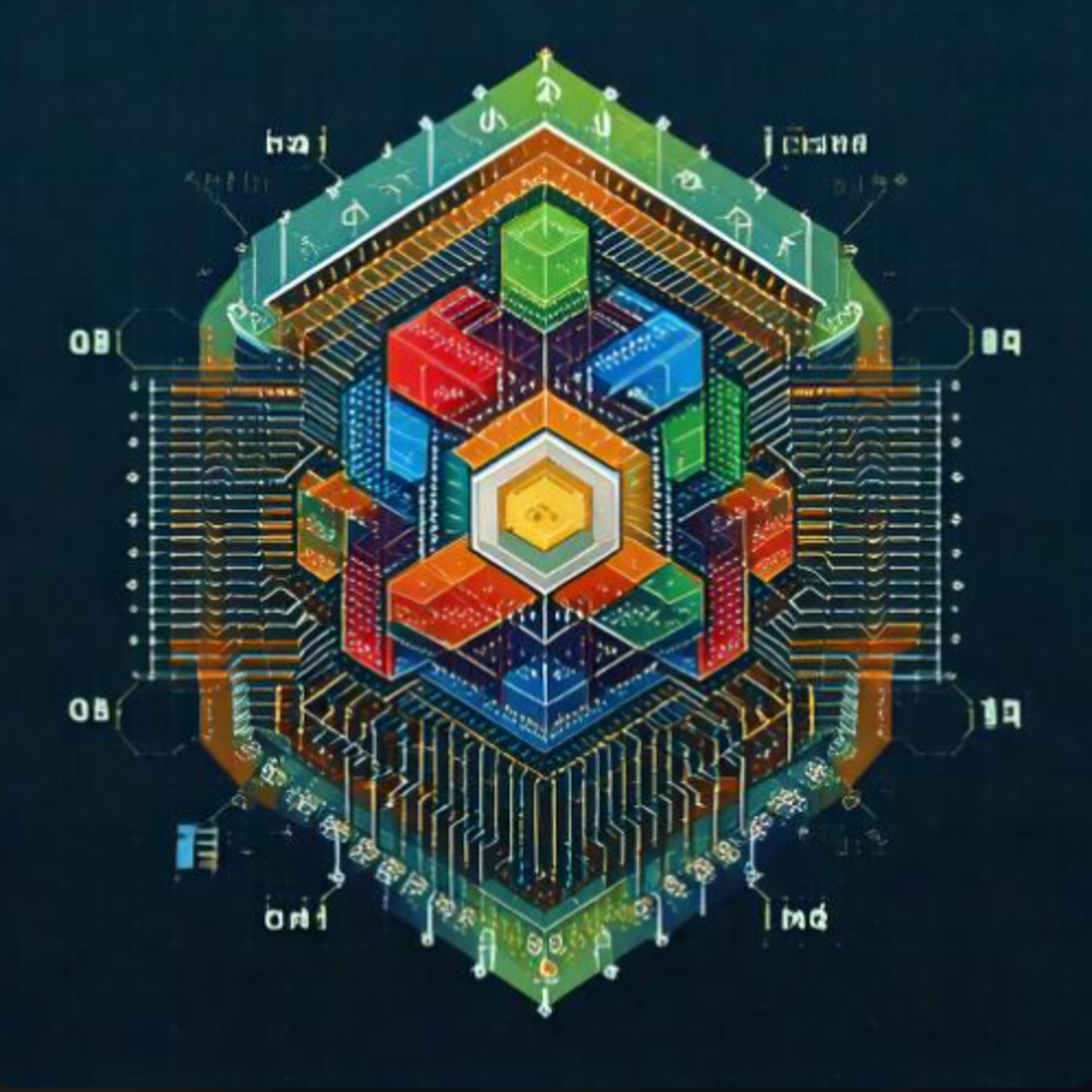 MasonCoding🎙️The Art of Hiding: The Magic of Information Hiding in Software DesignIn this episode, we explore an essential principle that transforms the way we design software: *'Information Hiding'!* 🚀 What if I told you that the key to writing clean, modular, maintainable code lies in *hiding* the secrets of your system? 🔐
We'll talk about how this technique, which consists of hiding the internal details of an object or module and revealing only the essentials through well-defined interfaces, can be the superpower you need to reduce complexity and prevent headaches down the road.
Plus, we'll break down how this philosophy is applied in paradigms like object-oriented and functional progra...2024-11-1915 min
MasonCoding🎙️The Art of Hiding: The Magic of Information Hiding in Software DesignIn this episode, we explore an essential principle that transforms the way we design software: *'Information Hiding'!* 🚀 What if I told you that the key to writing clean, modular, maintainable code lies in *hiding* the secrets of your system? 🔐
We'll talk about how this technique, which consists of hiding the internal details of an object or module and revealing only the essentials through well-defined interfaces, can be the superpower you need to reduce complexity and prevent headaches down the road.
Plus, we'll break down how this philosophy is applied in paradigms like object-oriented and functional progra...2024-11-1915 min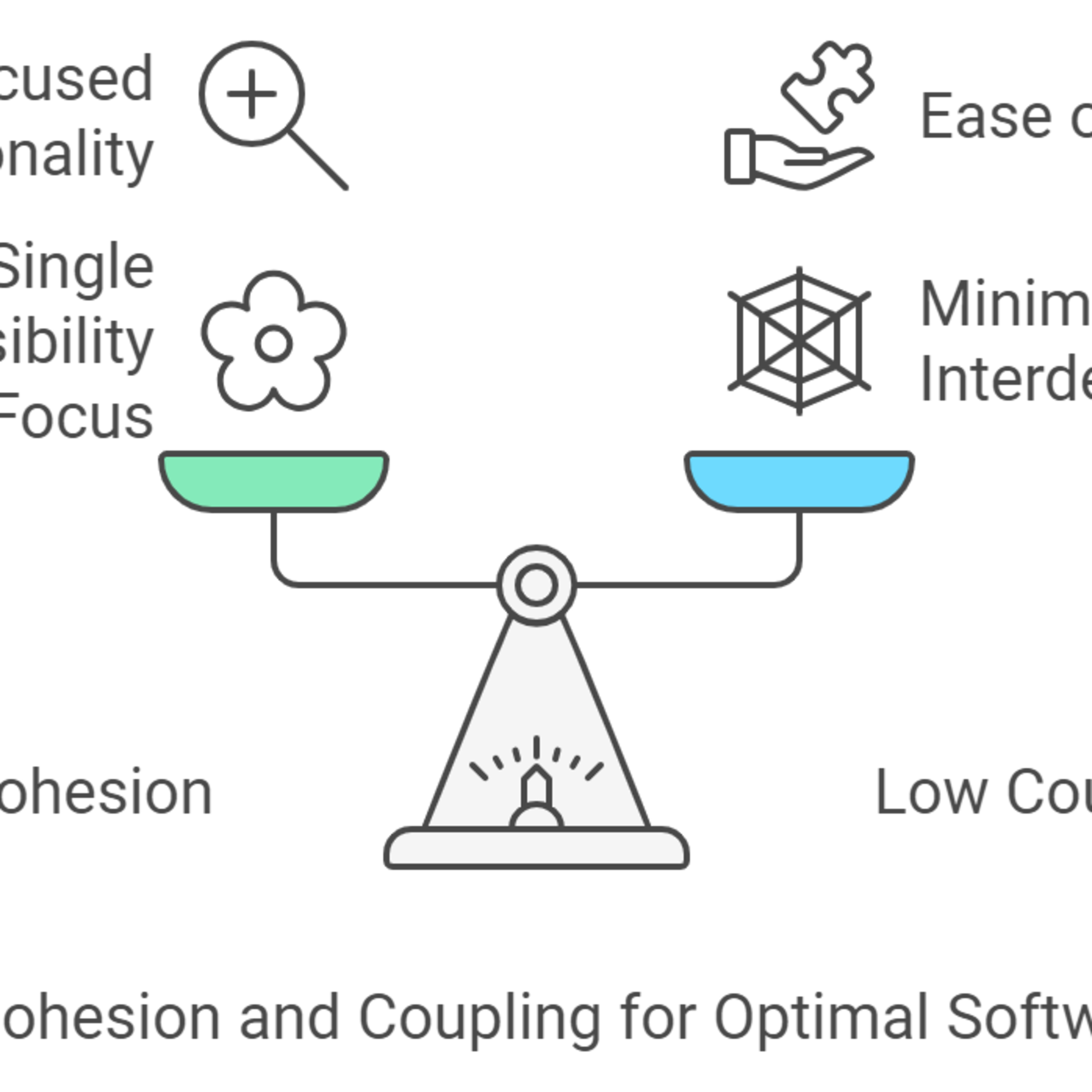 MasonCodingHigh Cohesion and Low Coupling: A Foundation for Robust Software DesignWelcome to today’s episode! We're diving deep into two fundamental principles of software design: high cohesion and low coupling. These concepts are foundational for building software that’s not only easier to understand and maintain but also more scalable and resilient over time. So, what exactly do we mean by high cohesion and low coupling? Simply put, high cohesion keeps related tasks and responsibilities together within a module, making code more organized and focused. Low coupling, on the other hand, minimizes dependencies between modules, so changes in one area don’t ripple through the entire system.
2024-11-1517 min
MasonCodingHigh Cohesion and Low Coupling: A Foundation for Robust Software DesignWelcome to today’s episode! We're diving deep into two fundamental principles of software design: high cohesion and low coupling. These concepts are foundational for building software that’s not only easier to understand and maintain but also more scalable and resilient over time. So, what exactly do we mean by high cohesion and low coupling? Simply put, high cohesion keeps related tasks and responsibilities together within a module, making code more organized and focused. Low coupling, on the other hand, minimizes dependencies between modules, so changes in one area don’t ripple through the entire system.
2024-11-1517 min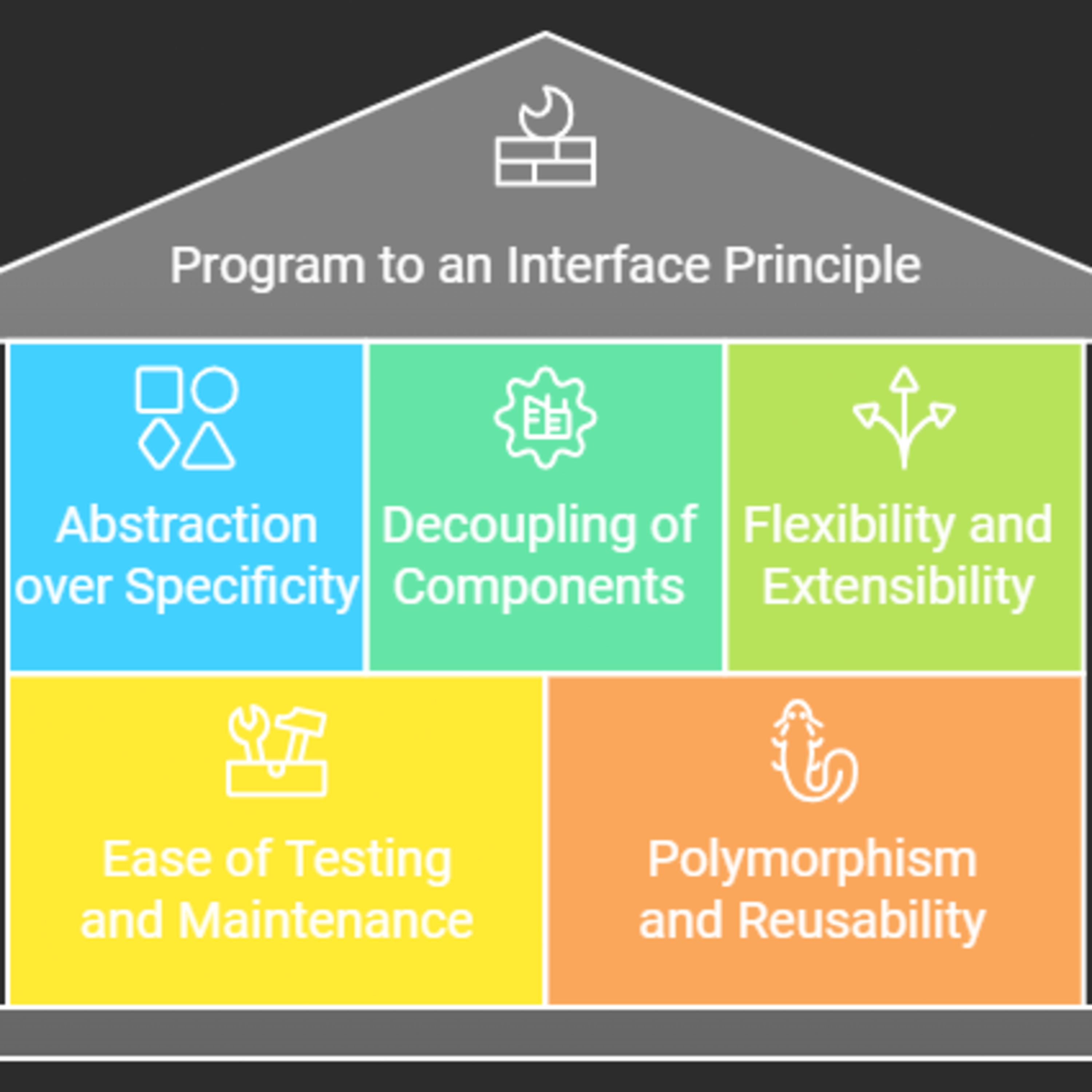 MasonCodingProgram to an Interface, Not an Implementation: A Fundamental Design Principle"Program to an Interface, Not an Implementation" stands as one of the most powerful design principles in modern software development. While it may sound abstract at first, this principle is your key to building flexible, maintainable, and truly professional software systems. In this guide, we'll break down this concept into practical terms and show you how to apply it effectively in your projects.
Read my article's blog here for more information from this topic👉🏽https://medium.com/@Masoncoding/programming-to-an-interface-not-an-implementation-024d018150702024-11-1226 min
MasonCodingProgram to an Interface, Not an Implementation: A Fundamental Design Principle"Program to an Interface, Not an Implementation" stands as one of the most powerful design principles in modern software development. While it may sound abstract at first, this principle is your key to building flexible, maintainable, and truly professional software systems. In this guide, we'll break down this concept into practical terms and show you how to apply it effectively in your projects.
Read my article's blog here for more information from this topic👉🏽https://medium.com/@Masoncoding/programming-to-an-interface-not-an-implementation-024d018150702024-11-1226 min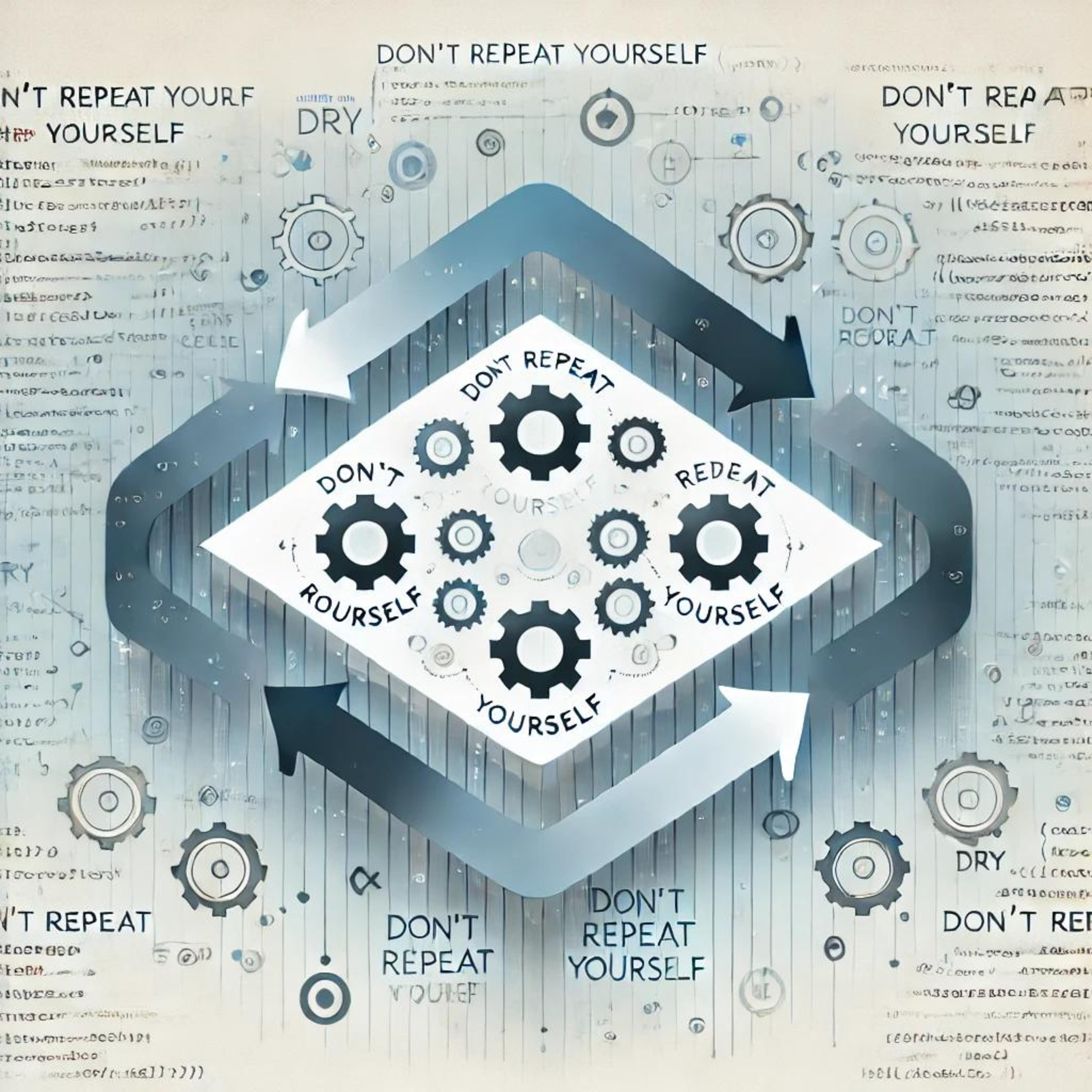 MasonCodingUnderstanding the DRY Software Design PrincipleThe DRY (Don't Repeat Yourself) principle is a fundamental principle in software development that promotes the elimination of redundancy in code to improve maintainability, readability and efficiency. This principle, described by Andy Hunt and Dave Thomas, suggests that every piece of knowledge in a system should have a unique representation. DRY is applied across various programming paradigms, such as object-oriented programming, functional programming and modular programming, each with its own strategies for achieving code reuse. However, applying too much DRY can lead to excessive abstractions and tightly coupled code, making it difficult to understand and maintain. Therefore, it is...2024-11-1215 min
MasonCodingUnderstanding the DRY Software Design PrincipleThe DRY (Don't Repeat Yourself) principle is a fundamental principle in software development that promotes the elimination of redundancy in code to improve maintainability, readability and efficiency. This principle, described by Andy Hunt and Dave Thomas, suggests that every piece of knowledge in a system should have a unique representation. DRY is applied across various programming paradigms, such as object-oriented programming, functional programming and modular programming, each with its own strategies for achieving code reuse. However, applying too much DRY can lead to excessive abstractions and tightly coupled code, making it difficult to understand and maintain. Therefore, it is...2024-11-1215 min MasonCodingFavor Composition Over Inheritance: A Powerful Software Design PrincipleIn software design, choosing the right principles can significantly influence code efficiency, maintainability, and adaptability. One highly regarded principle in object-oriented programming is the “Favor Composition Over Inheritance” principle. This guideline advocates for constructing software systems using composition — creating classes by combining objects with distinct responsibilities — instead of relying heavily on inheritance, which can lead to rigid and tightly coupled designs. Composition, in contrast, offers flexibility by enabling independent modules to be assembled and reassembled for different functionalities, resulting in more adaptable and testable software. This article examines the benefits, applicability, and implementation of this principle across different programming paradigm...2024-11-0806 min
MasonCodingFavor Composition Over Inheritance: A Powerful Software Design PrincipleIn software design, choosing the right principles can significantly influence code efficiency, maintainability, and adaptability. One highly regarded principle in object-oriented programming is the “Favor Composition Over Inheritance” principle. This guideline advocates for constructing software systems using composition — creating classes by combining objects with distinct responsibilities — instead of relying heavily on inheritance, which can lead to rigid and tightly coupled designs. Composition, in contrast, offers flexibility by enabling independent modules to be assembled and reassembled for different functionalities, resulting in more adaptable and testable software. This article examines the benefits, applicability, and implementation of this principle across different programming paradigm...2024-11-0806 min MasonCodingEncapsulate What Varies: A Fundamental Software Design PrincipleHello and welcome to today’s episode of the podcast! 🎙️ Today, we’re exploring one of the cornerstones of software design: *Encapsulate What Varies*. This principle is all about creating software that’s built to last—systems that can adapt and evolve without breaking under pressure. Imagine crafting code that stands strong against change, maintaining stability while opening doors to scalability and resilience. Whether you're building a small app or architecting a complex system, learning to isolate changeable components is a game-changer. In this episode, we’ll dive into practical insights on identifying, containing, and mastering these variations to make your code...2024-11-0505 min
MasonCodingEncapsulate What Varies: A Fundamental Software Design PrincipleHello and welcome to today’s episode of the podcast! 🎙️ Today, we’re exploring one of the cornerstones of software design: *Encapsulate What Varies*. This principle is all about creating software that’s built to last—systems that can adapt and evolve without breaking under pressure. Imagine crafting code that stands strong against change, maintaining stability while opening doors to scalability and resilience. Whether you're building a small app or architecting a complex system, learning to isolate changeable components is a game-changer. In this episode, we’ll dive into practical insights on identifying, containing, and mastering these variations to make your code...2024-11-0505 min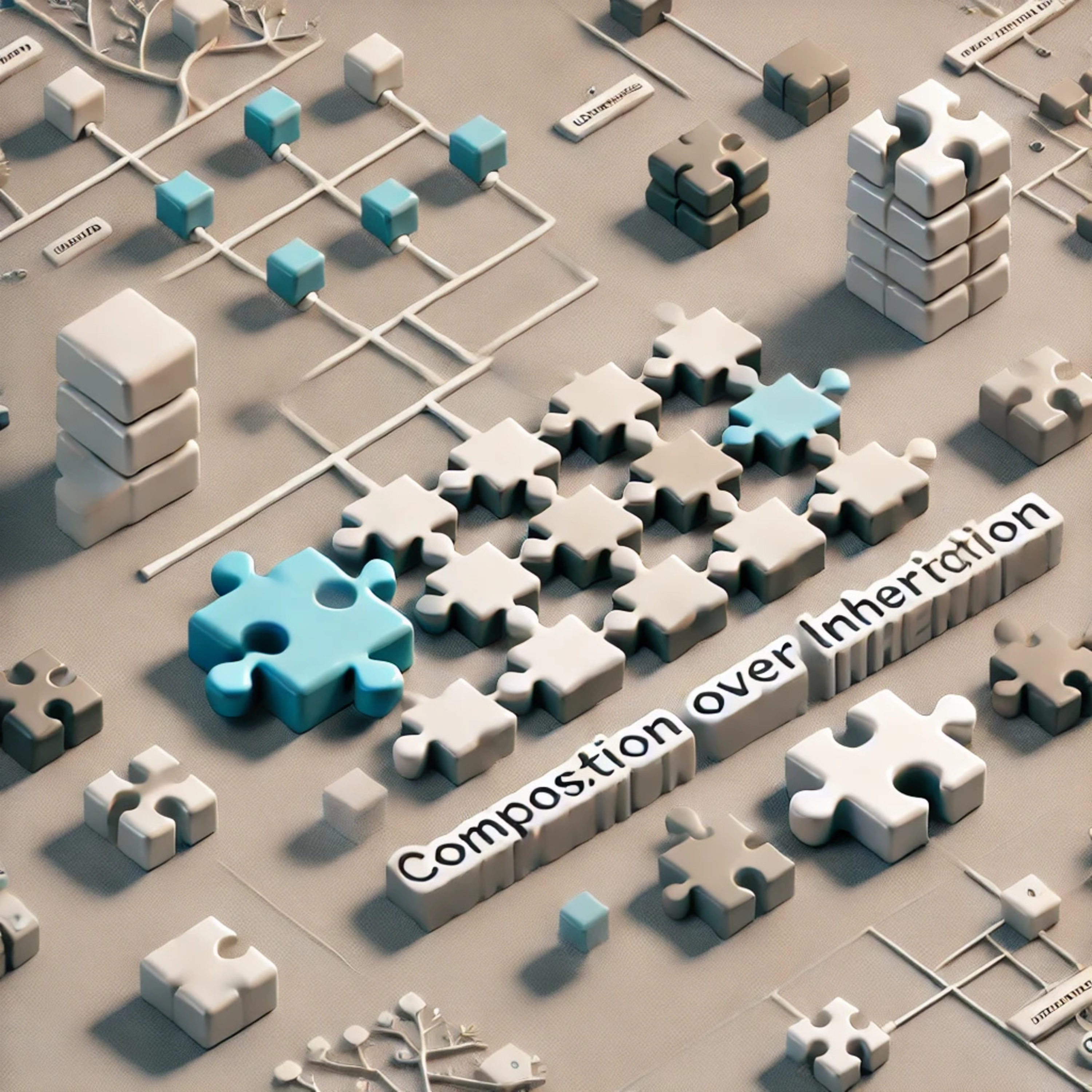 MasonCodingComposition over InheritanceIn today’s episode, we’ll explore a foundational principle in software development: composition over inheritance. Imagine building powerful, adaptable systems not through rigid hierarchies but by assembling independent, simple components. This approach brings advantages like flexibility, modularity, and better testability, ultimately reducing dependencies within code.
We’ll explore how this principle shines across various programming paradigms—from object-oriented design to component-based architectures and even functional programming. You’ll hear real-world examples in languages like Java, Python, JavaScript, and Swift that showcase composition's power over traditional inheritance.
Curious about which appr...2024-11-0115 min
MasonCodingComposition over InheritanceIn today’s episode, we’ll explore a foundational principle in software development: composition over inheritance. Imagine building powerful, adaptable systems not through rigid hierarchies but by assembling independent, simple components. This approach brings advantages like flexibility, modularity, and better testability, ultimately reducing dependencies within code.
We’ll explore how this principle shines across various programming paradigms—from object-oriented design to component-based architectures and even functional programming. You’ll hear real-world examples in languages like Java, Python, JavaScript, and Swift that showcase composition's power over traditional inheritance.
Curious about which appr...2024-11-0115 min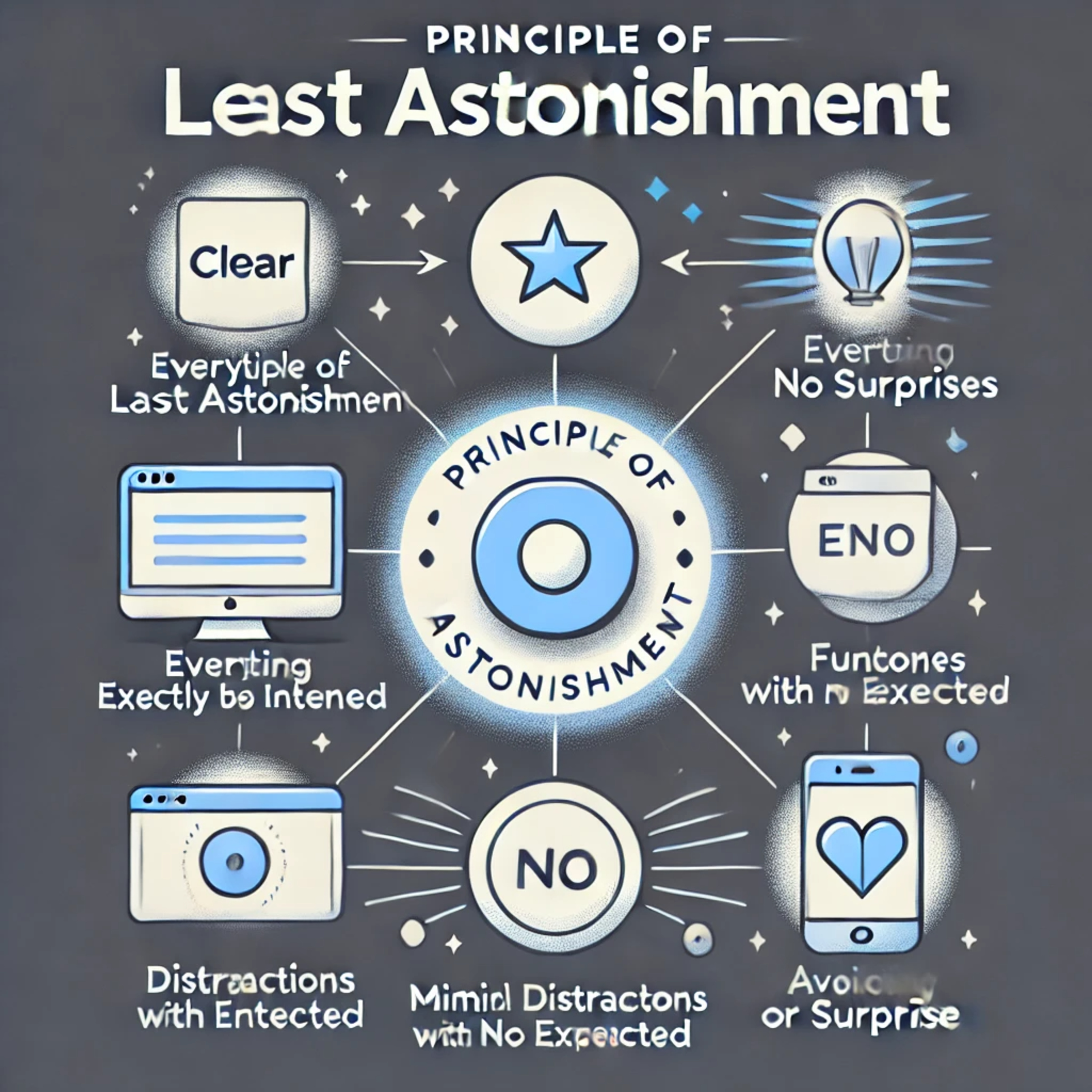 MasonCodingPrinciple of Least Astonishment (POLA)This principle holds that software should behave in a way that surprises users and developers as little as possible. The design should be intuitive and predictable to avoid unexpected behavior.2024-10-2819 min
MasonCodingPrinciple of Least Astonishment (POLA)This principle holds that software should behave in a way that surprises users and developers as little as possible. The design should be intuitive and predictable to avoid unexpected behavior.2024-10-2819 min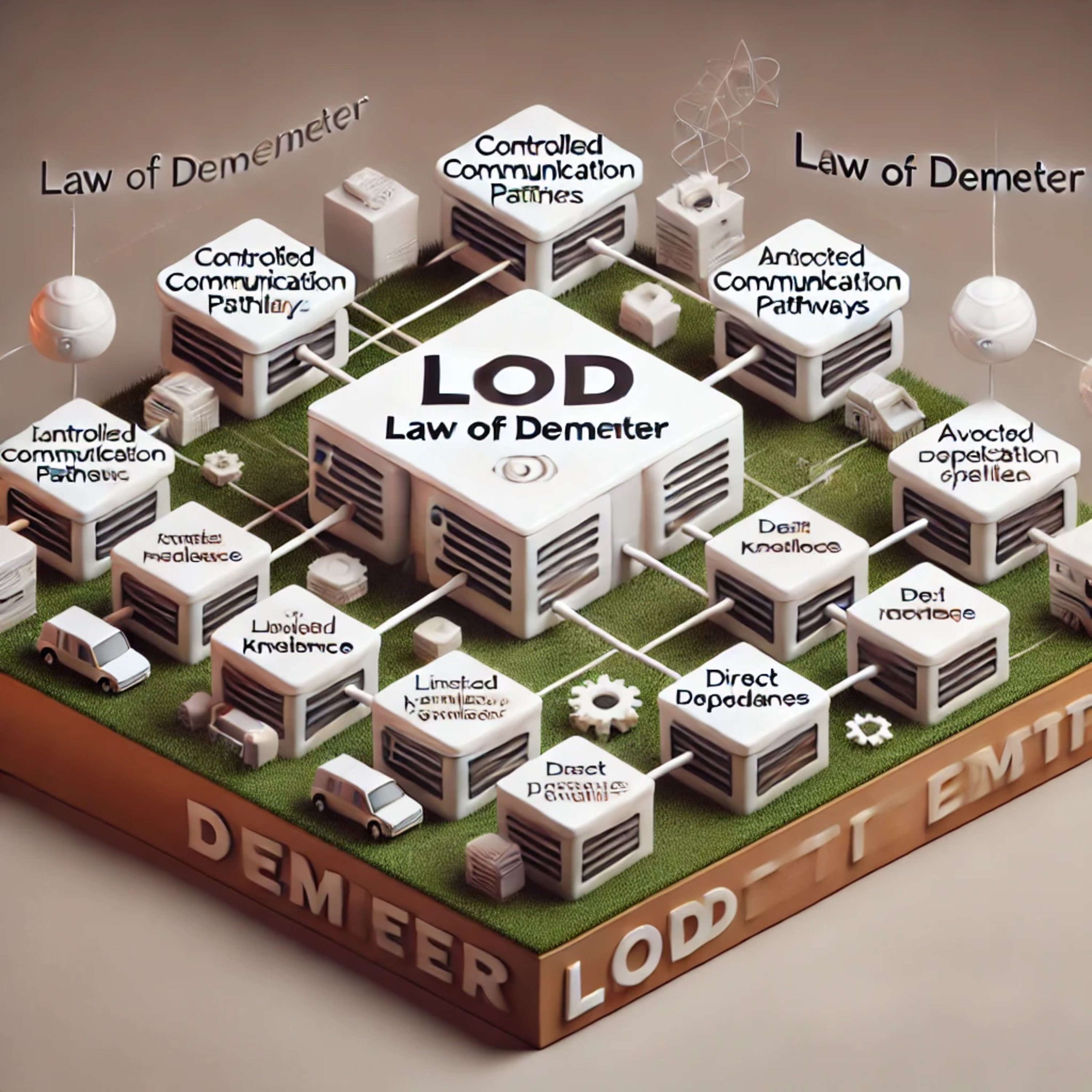 MasonCodingLaw of Demeter (LoD)Also known as the "Law of Minimum Exposure", an object should have limited knowledge of other objects. This encourages low coupling between classes and improves encapsulation.2024-10-2314 min
MasonCodingLaw of Demeter (LoD)Also known as the "Law of Minimum Exposure", an object should have limited knowledge of other objects. This encourages low coupling between classes and improves encapsulation.2024-10-2314 min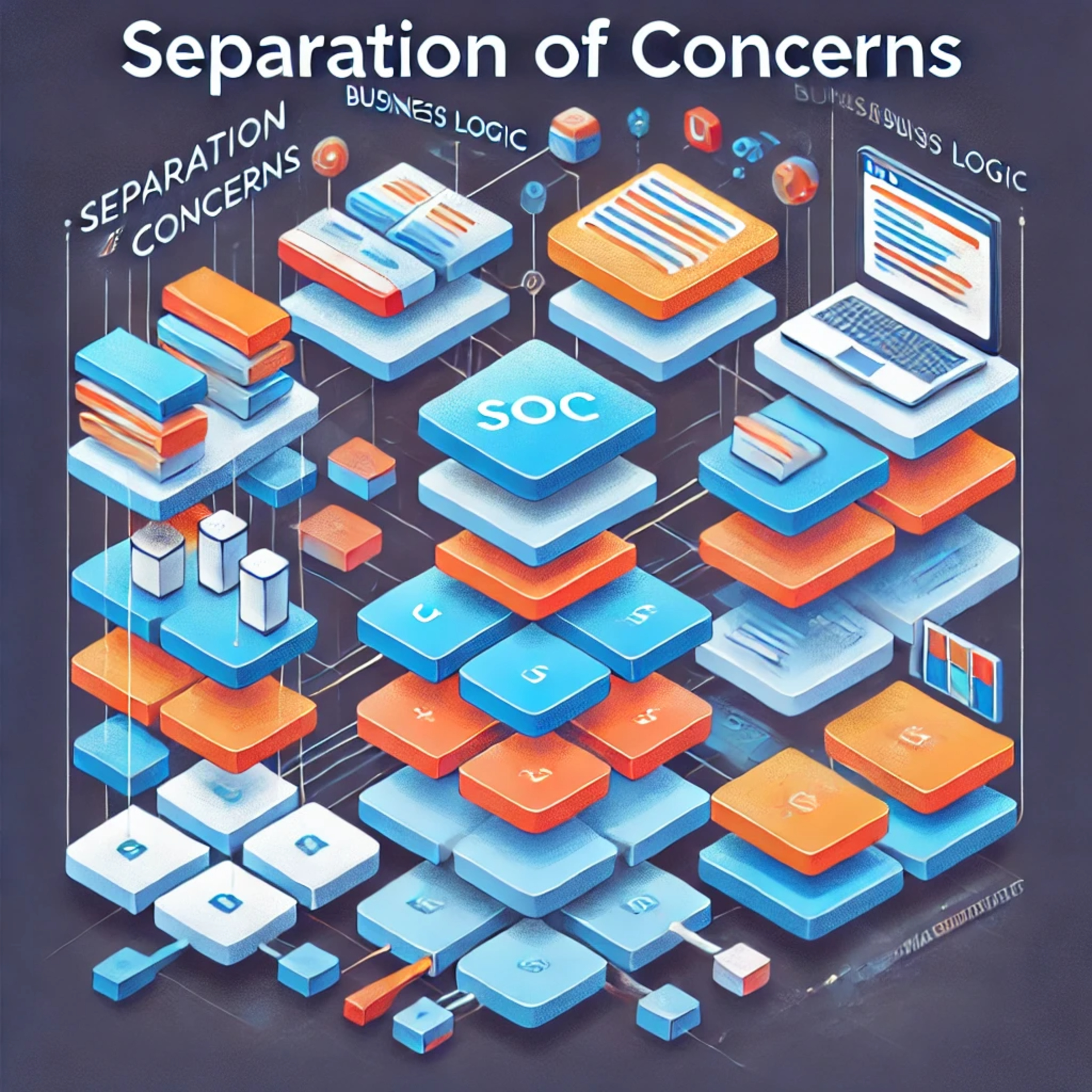 MasonCodingSeparation of Concerns (SoC)The episode provides a detailed explanation of the Separation of Concerns (SoC) principle in software development. It explores the importance of organizing code into independent sections with specific responsibilities, improving the clarity, maintainability, and scalability of software. It discusses how the SoC principle is implemented in various programming paradigms, such as object-oriented programming and functional programming, as well as can be applied in popular languages such as Python, JavaScript, Ruby, Haskell, and C#.2024-10-2109 min
MasonCodingSeparation of Concerns (SoC)The episode provides a detailed explanation of the Separation of Concerns (SoC) principle in software development. It explores the importance of organizing code into independent sections with specific responsibilities, improving the clarity, maintainability, and scalability of software. It discusses how the SoC principle is implemented in various programming paradigms, such as object-oriented programming and functional programming, as well as can be applied in popular languages such as Python, JavaScript, Ruby, Haskell, and C#.2024-10-2109 min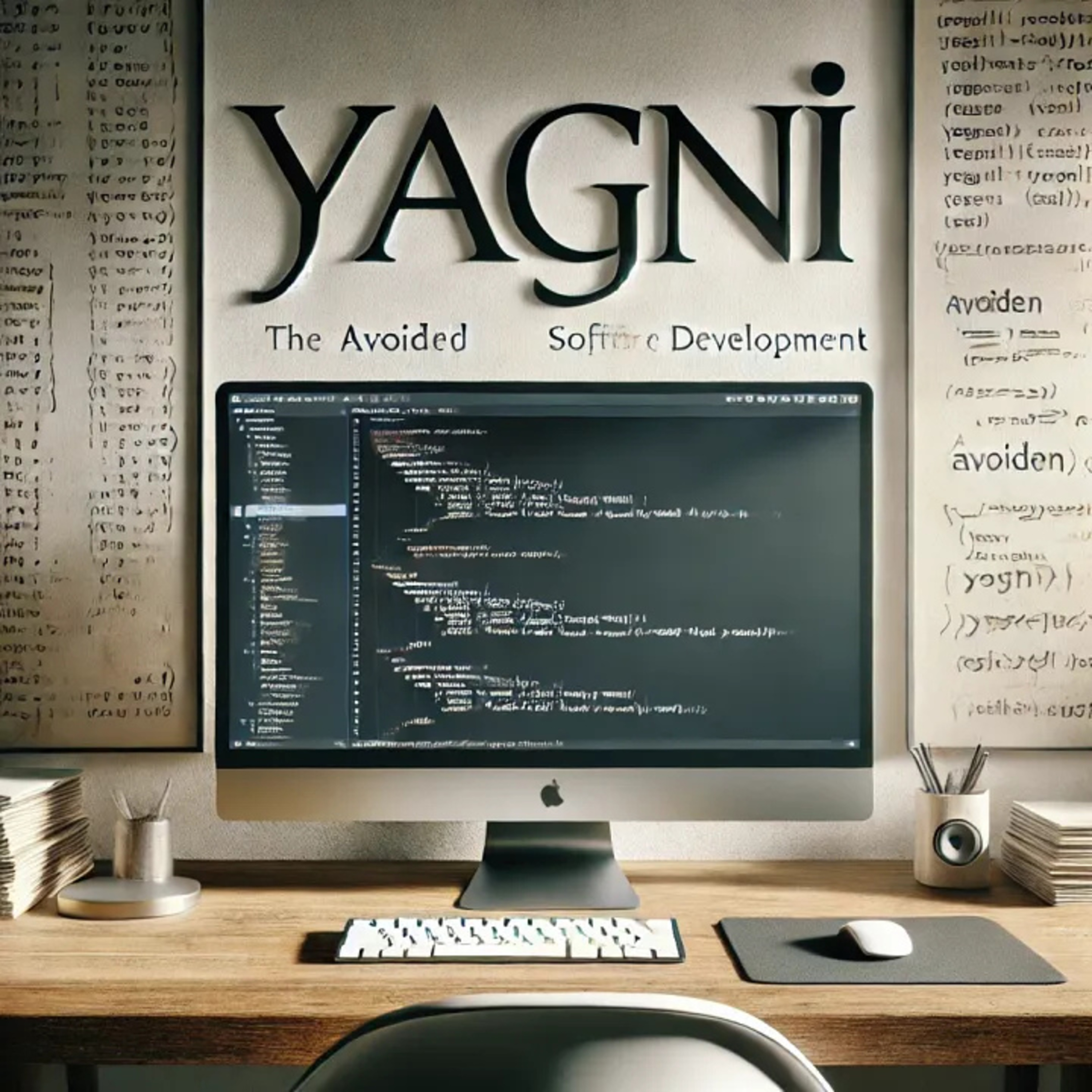 MasonCodingYAGNI (You Aren’t Gonna Need It): A Guide to a Leaner Codebase
In the world of software development, maintaining a balance between efficiency, scalability, and simplicity is paramount. Among the many guiding principles that help developers achieve this balance, YAGNI — an acronym for ”You Aren’t Gonna Need It” — stands out as one of the most impactful. This principle, while seemingly simple, carries profound implications for software design, architecture, and project management. In this article, we will explore YAGNI in detail, examine its benefits and challenges, and see how it applies across various programming languages and paradigms.
More info: https://medium.com/@Masoncoding/yagni-you-arent-gonna-need-it-a-guide-to-a-leaner-codebase-75e7f70bf263 2024-10-1607 min
MasonCodingYAGNI (You Aren’t Gonna Need It): A Guide to a Leaner Codebase
In the world of software development, maintaining a balance between efficiency, scalability, and simplicity is paramount. Among the many guiding principles that help developers achieve this balance, YAGNI — an acronym for ”You Aren’t Gonna Need It” — stands out as one of the most impactful. This principle, while seemingly simple, carries profound implications for software design, architecture, and project management. In this article, we will explore YAGNI in detail, examine its benefits and challenges, and see how it applies across various programming languages and paradigms.
More info: https://medium.com/@Masoncoding/yagni-you-arent-gonna-need-it-a-guide-to-a-leaner-codebase-75e7f70bf263 2024-10-1607 min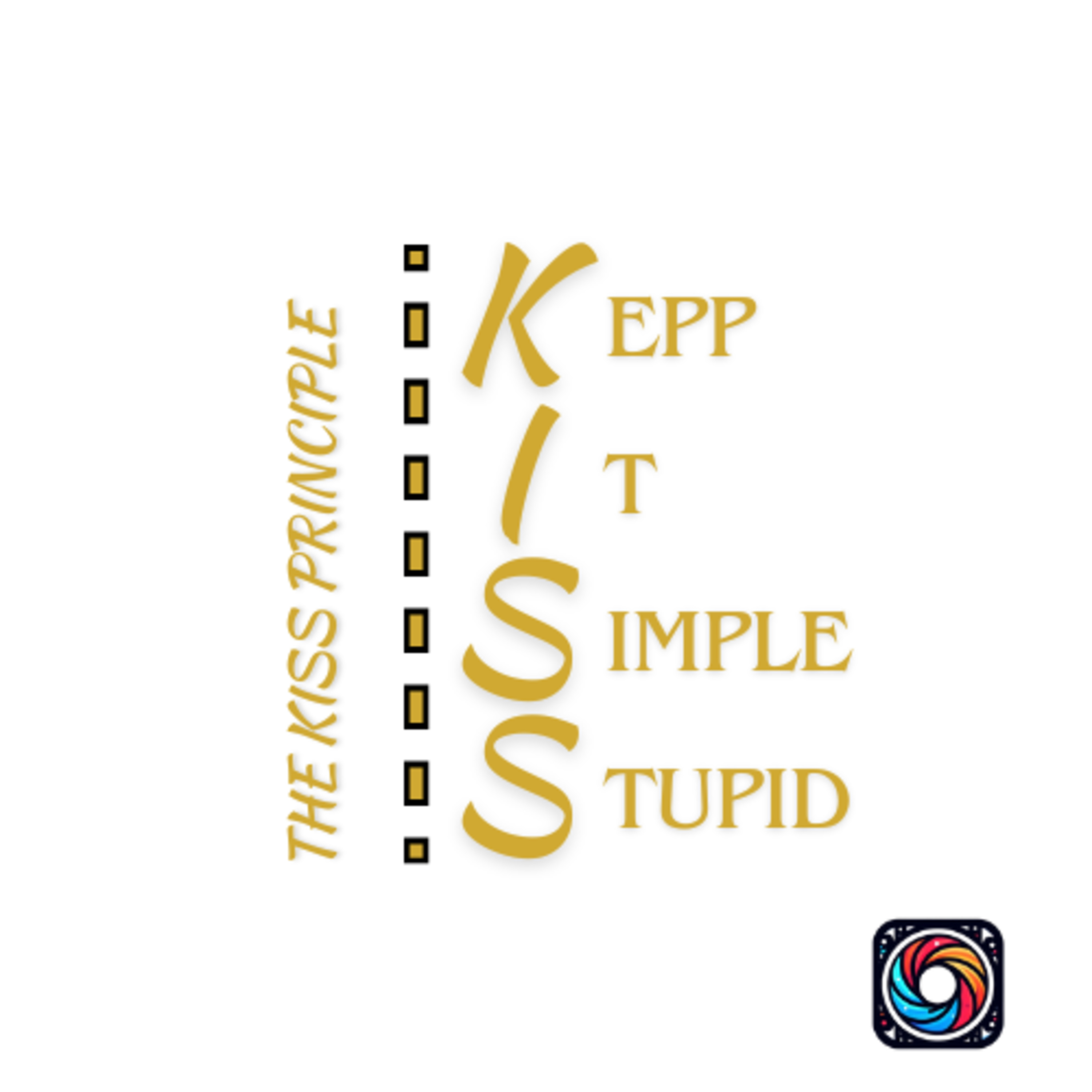 MasonCodingUnderstanding the KISS Software Design PrincipleThe text explains the KISS principle in software development, which stands for “Keep It Simple, Stupid”. This principle promotes the creation of simple, straightforward solutions to avoid unnecessary complexity in code. The text discusses the benefits of KISS, including improved readability, maintainability, reduced bugs and increased productivity. It also explores the application of KISS in different programming paradigms, such as imperative, object-oriented, functional and modular programming. Finally, programming languages that naturally lean towards KISS are mentioned, such as Python, Go, Ruby, JavaScript and C.2024-10-1409 min
MasonCodingUnderstanding the KISS Software Design PrincipleThe text explains the KISS principle in software development, which stands for “Keep It Simple, Stupid”. This principle promotes the creation of simple, straightforward solutions to avoid unnecessary complexity in code. The text discusses the benefits of KISS, including improved readability, maintainability, reduced bugs and increased productivity. It also explores the application of KISS in different programming paradigms, such as imperative, object-oriented, functional and modular programming. Finally, programming languages that naturally lean towards KISS are mentioned, such as Python, Go, Ruby, JavaScript and C.2024-10-1409 min MasonCodingThe SOLID Principles: Fundamentals for Robust and Maintainable SoftwareThis episode we summarize the article, which explains the five SOLID principles for object-oriented software development, which are Single Responsibility Principle (SRP), Open/Closed Principle (OCP), Liskov Substitution Principle (LSP), Interface Segregation Principle (ISP) and Dependency Inversion Principle (DIP). The article provides a detailed description of each principle, how they relate to object-oriented programming, and practical examples of their implementation in Python, JavaScript, Ruby, Swift and Kotlin. The article also highlights the importance of SOLID for creating flexible, maintainable and scalable code.
Read this article here 👉🏽 https://medium.com/@Masoncoding/los-principios-solid-fundamentos-para-un-software-robusto-y-mantenible-00d33e664b3d2024-10-0714 min
MasonCodingThe SOLID Principles: Fundamentals for Robust and Maintainable SoftwareThis episode we summarize the article, which explains the five SOLID principles for object-oriented software development, which are Single Responsibility Principle (SRP), Open/Closed Principle (OCP), Liskov Substitution Principle (LSP), Interface Segregation Principle (ISP) and Dependency Inversion Principle (DIP). The article provides a detailed description of each principle, how they relate to object-oriented programming, and practical examples of their implementation in Python, JavaScript, Ruby, Swift and Kotlin. The article also highlights the importance of SOLID for creating flexible, maintainable and scalable code.
Read this article here 👉🏽 https://medium.com/@Masoncoding/los-principios-solid-fundamentos-para-un-software-robusto-y-mantenible-00d33e664b3d2024-10-0714 min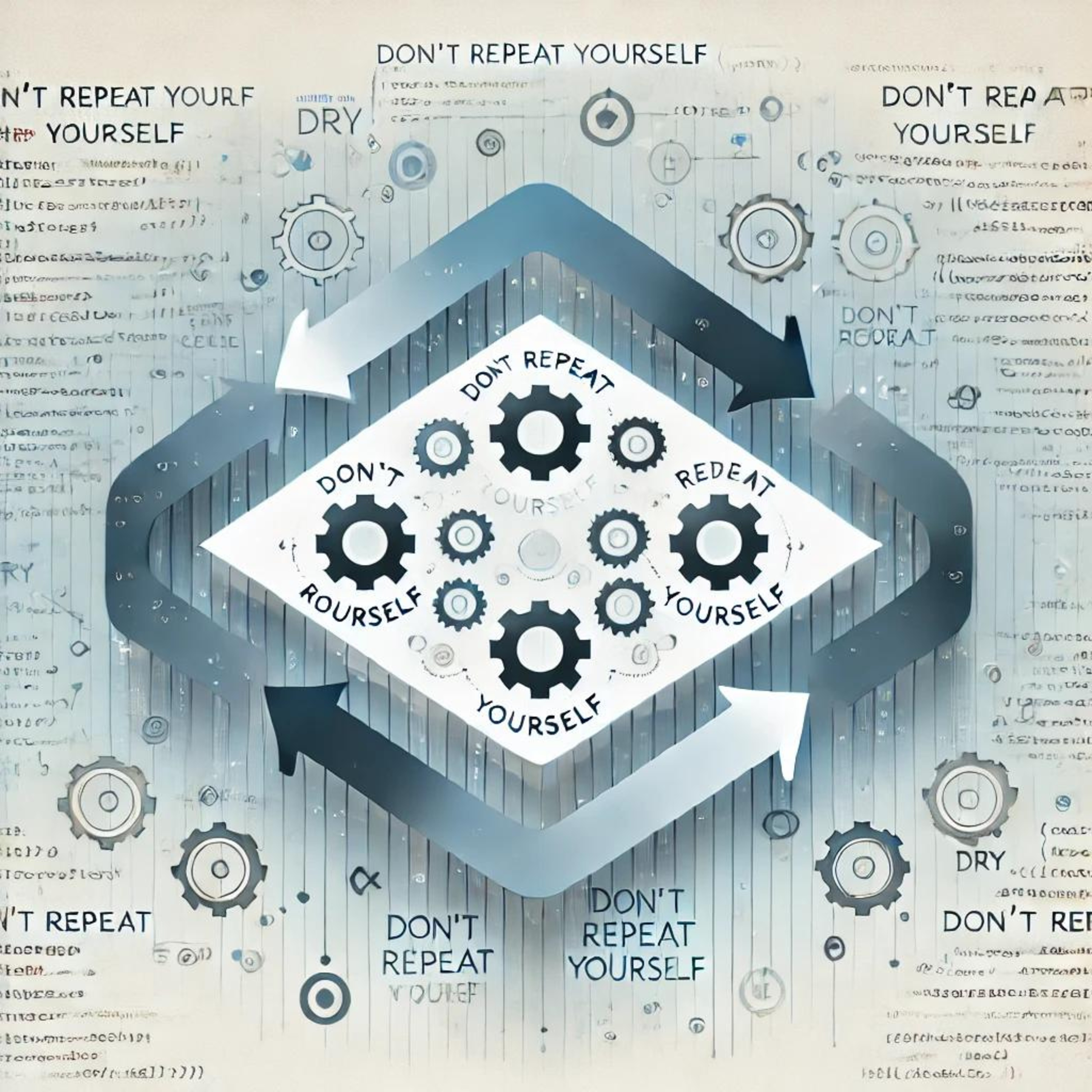 MasonCodingPrincipio de Diseño de Software: Don't Repeat Yourself (No Te Repitas)En el desarrollo de software, es esencial escribir un código limpio, fácil de mantener y eficiente. Uno de los principios fundamentales que guían a los desarrolladores para conseguirlo es el principio DRY, que significa «Don't Repeat Yourself» (no te repitas). El principio DRY es una piedra angular en la práctica de la escritura de código eficaz, animando a los desarrolladores a eliminar la redundancia y garantizar que cada pieza de información o lógica se representa de una manera única y sin ambigüedades dentro de la base de código.2024-10-0209 min
MasonCodingPrincipio de Diseño de Software: Don't Repeat Yourself (No Te Repitas)En el desarrollo de software, es esencial escribir un código limpio, fácil de mantener y eficiente. Uno de los principios fundamentales que guían a los desarrolladores para conseguirlo es el principio DRY, que significa «Don't Repeat Yourself» (no te repitas). El principio DRY es una piedra angular en la práctica de la escritura de código eficaz, animando a los desarrolladores a eliminar la redundancia y garantizar que cada pieza de información o lógica se representa de una manera única y sin ambigüedades dentro de la base de código.2024-10-0209 min MasonCodingLos Principios SOLID: Fundamentos para un Software Robusto y MantenibleEn este episodio, desglosaremos cada uno de los principios de SOLID, explicaremos a qué paradigma de programación se ajustan, discutiremos los lenguajes de programación en los que se aplican, y construiremos un ejemplo práctico que demuestre la implementación de estos principios en conjunto.
2024-09-2606 min
MasonCodingLos Principios SOLID: Fundamentos para un Software Robusto y MantenibleEn este episodio, desglosaremos cada uno de los principios de SOLID, explicaremos a qué paradigma de programación se ajustan, discutiremos los lenguajes de programación en los que se aplican, y construiremos un ejemplo práctico que demuestre la implementación de estos principios en conjunto.
2024-09-2606 min MasonCodingIntroducción a los Principios de Diseño de Software
El diseño de software es una disciplina fundamental dentro de la ingeniería de software, encargada de establecer los cimientos para que una aplicación sea eficiente, mantenible y escalable a lo largo del tiempo. La correcta implementación de los principios de diseño permite reducir la complejidad, mejorar la calidad del código y facilitar su evolución, reduciendo el riesgo de errores y el costo asociado a cambios futuros.
2024-09-1904 min
MasonCodingIntroducción a los Principios de Diseño de Software
El diseño de software es una disciplina fundamental dentro de la ingeniería de software, encargada de establecer los cimientos para que una aplicación sea eficiente, mantenible y escalable a lo largo del tiempo. La correcta implementación de los principios de diseño permite reducir la complejidad, mejorar la calidad del código y facilitar su evolución, reduciendo el riesgo de errores y el costo asociado a cambios futuros.
2024-09-1904 min